
On 5 May 1958 The Phantom Major was published. Written by the American author and former war correspondent Virginia Cowles, the book was an authorised biography of David Stirling, founder of the SAS and, according to Cowles, “a well-established legend”.
The book was timely. Britain’s confidence was low, what with the ongoing breakup of the empire and humiliation at the Suez Canal in Egypt 18 months earlier. The nation needed a hero, a reminder of past glories. David Stirling fitted the bill.
The reviews of The Phantom Major were ecstatic. The Daily Express made the bold claim that Stirling “shortened the war for us”, and the Birmingham Post hailed him a genius. Across the water in Northern Ireland, the Belfast Telegraph praised the breathless prose of Cowles in describing Stirling’s “incredibly audacious sabotage”. Nevertheless, the paper respectfully pointed out that many of the SAS exploits in North Africa in 1941 and 1942 had been inspired by “the late R. Blair Mayne”.
The mention of that name would have pricked Stirling’s conscience. Robert Blair Mayne, ‘Paddy’ to his comrades, had finished the war with a DSO and three bars, and a reputation as a brilliant guerrilla fighter. Agile, innovative and extraordinarily brave, the former international rugby star was everything Stirling wanted to be but was not. He spent the years immediately after the war bitter and resentful, but when Mayne was killed in a car crash in December 1955 Stirling spotted an opportunity. The story of how the SAS came to be formed would now be told, and Stirling, not Mayne, would be the dashing hero, the fearless guerrilla, the Phantom Major.
From the ranch to the regiment
この記事は History of War の Issue 107, 2022 版に掲載されています。
7 日間の Magzter GOLD 無料トライアルを開始して、何千もの厳選されたプレミアム ストーリー、9,000 以上の雑誌や新聞にアクセスしてください。
すでに購読者です ? サインイン
この記事は History of War の Issue 107, 2022 版に掲載されています。
7 日間の Magzter GOLD 無料トライアルを開始して、何千もの厳選されたプレミアム ストーリー、9,000 以上の雑誌や新聞にアクセスしてください。
すでに購読者です? サインイン
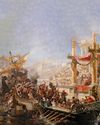
NAUMACHIA TRUTH BEHIND ROME'S GLADIATOR SEA BATTLES
In their quest for evermore novel and bloody entertainment, the Romans staged enormous naval fights on artificial lakes
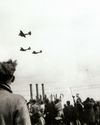
OPERATION MANNA
In late April 1945, millions of Dutch civilians were starving as Nazi retribution for the failed Operation Market Garden cut off supplies. eet as In response, Allied bombers launched a risky mission to air-drop food
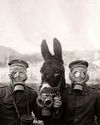
GASSING HITLER
Just a month before the end of WWI, the future Fuhrer was blinded by a British shell and invalided away from the frontline. Over a century later, has the artillery brigade that launched the fateful attack finally been identified?
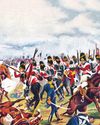
SALAMANCA
After years of largely defensive campaigning, Lieutenant General Arthur Wellesley went on the offensive against a French invasion of Andalusia
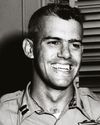
HUMBERT 'ROCKY'VERSACE
Early in the Vietnam War, a dedicated US Special Forces officer defied his merciless Viet Cong captors and inspired his fellow POWs to survive
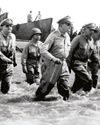
LEYTE 1944 SINKING THE RISING SUN
One of the more difficult island campaigns in WWII's Pacific Theatre saw a brutal months-long fight that exhausted Japan’s military strength

MAD DAWN
How technology transformed strategic thinking and military doctrine from the Cold War to the current day
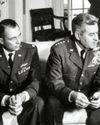
BRUSHES WITH ARMAGEDDON
Humanity came close to self-annihilation with the Cuban Missile Crisis, Broken Arrows’ and other nuclear near misses
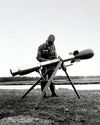
THE DEADLY RACE
How the road to peace led to an arms contest between the USA and USSR, with prototypes, proliferation and the world’s biggest bomb
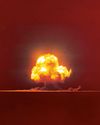
THE MANHATTAN PROJECT
Einstein, Oppenheimer and the race to beat Hitler to the bomb. How a science project in the desert helped win a war